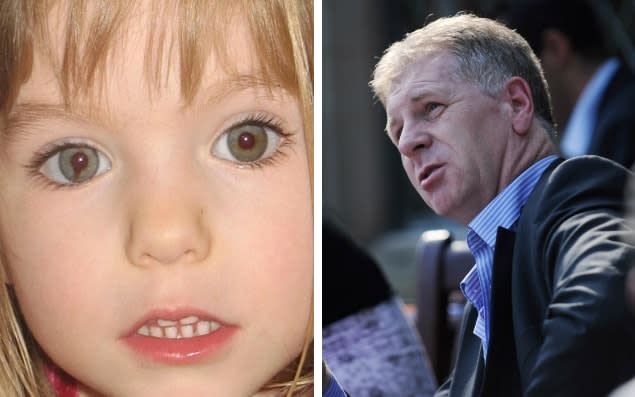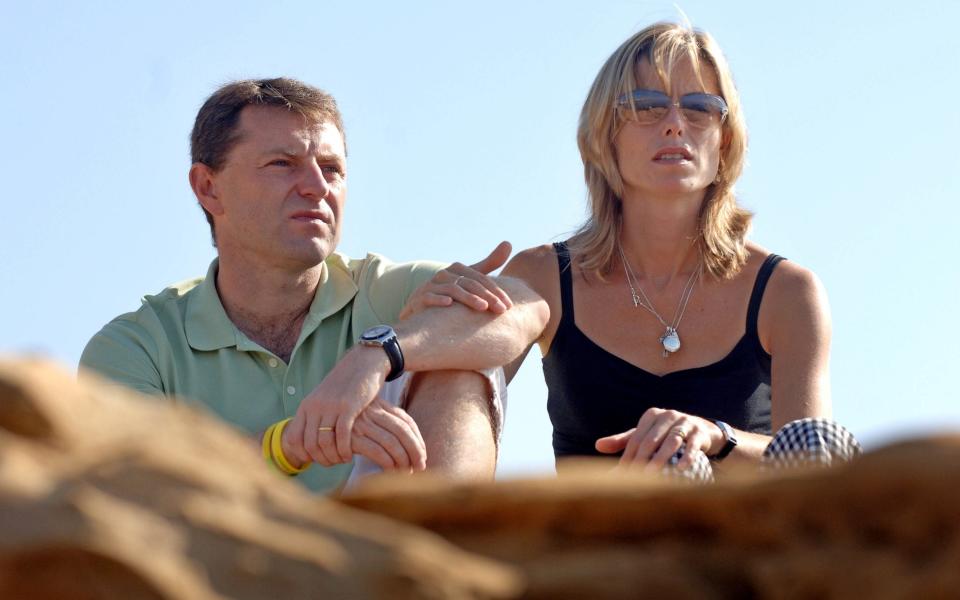What McCann spokesman Clarence Mitchell really thinks happened to Madeleine

This article was originally published in March 2019.
When Clarence Mitchell picked up the phone at work one morning, he expected yet another routine conversation.
But it was a phone call that plucked him from the mundane life of a civil service job and dropped him right in the heart of one of the biggest missing children’s cases the world has ever seen.
An ex-BBC reporter, Mitchell was by then working in a government-led arm on media monitoring, but had asked ex-colleagues to keep him in mind for any big stories that broke. “I thought it might be something like bird flu, or foot and mouth. A general crisis that flares up from time to time,” explains Mitchell.
But this was May 2007, and a three-year-old Madeleine McCann had just been snatched from her hotel room in Praia du Luz, Portugal, taken from her bed while her parents dined in a nearby restaurant.
“The ambassador [to Portugal] had sent a couple of press officers down there, but they were overwhelmed by the media response. He asked for some extra help from London,” Mitchell recalls.
“I was sent out and told it would just be a fortnight or so." Mitchell is still helping the family. Fascination with Madeleine's case has never abated - a recent Netflix series, The Disappearance of Madeleine McCann, was released in March - and Mitchell has been handling Gerry and Kate's media dealings ever since.
“Some of the coverage had been very negative, and so I thought this was a chance to help them," the 57-year-old says.

“We have a good working relationship. Friendly but professional," he adds. "We do not socialise, it is not necessarily appropriate, but the media coverage is still pretty intrusive and they see me as a part of dealing with it."
Mitchell had to consider the impact that taking on such a case would have on him - his own children were 10, eight and one at the time. “I could not help but think of my kids when I was at the height of it... I was away from home a lot of the time as well," he recalls.
“That said, I treated it as a job. Although it was upsetting, and I could see the pain it was causing the family, I could not afford to get emotionally attached to the situation. I just had to look at the set of facts in front of me, and treat it as dispassionately as possible."
He admits that it was "upsetting," but adds that, "without being callous, I had to keep the actual emotion to one side. Not wanting to sound cold-hearted, but I do not think it has affected me particularly badly. I tried to be as impartial as possible, and still try to this day.”
Over the years, the McCanns have faced a great deal of criticism over their parenting, and perceived role in Madeleine’s disappearance. “A lot of it is misinformed, misguided and based purely on assumptions or lack of knowledge," Mitchell says. Mostly, though, it is "prejudice. People deciding that they don’t like the McCanns.”

Mitchell estimates that "thousands" of people have told him they have seen the little girl in a dream - including a lot of psychics - while "one of the most ridiculous conspiracy theories I have heard was that Madeleine was born as the result of a government cloning project.
“People also assumed the worst. That [the McCanns] were getting drunk, that they were having fun and that they did not care about their children."
Further criticism of Gerry and Kate has labelled them "neglectful. There is even those who say that the parents know what happened. They don’t. It is just not true. But try explaining that in the noise of social media and general coverage.”
The McCanns' restrained emotional response to the cameras in the immediate aftermath of Madeleine's disappearance provoked questions: how could they be so contained after something so terrible had happened?
“One of the reasons they were so controlled was because they were told very early on that often, in the case of paedophilic kidnaps, the perpetrators watch media coverage and enjoy seeing the distress that they have caused," Mitchell explains.

“So, the police told them not to cry. Not to show any over-emotion. Kate and Gerry, both doctors and both logical, were not going to let that b------ have that satisfaction and so were very rigid.
He understands, though, that “for someone who does not know that, they might think it looks a bit suspicious. It is almost like the public were expecting the parents to react in a certain way.”
Things were worsened still by what he calls "a spin-cycle of madness." The papers were full of "McCann fury", he remembers; "the tabloids exaggerated and distorted the information." He is also critical of the Portuguese authorities, as "there would be certain bits of information that could have only come from interviews with the Portuguese police, who wouldn't then confirm anything due to Portuguese laws prohibiting the discussion of legal cases.”
Since the McCanns entered the public eye in 2007, they have received mountains of abuse; Mitchell, too, has had his fair share of online trolls.
“I get slammed online all the time for defending them," he says, adding that while he ignores it as best he can, "it is hurtful and it is unnecessary. The McCanns ignore the online negativity and so do I. We only act if there are specific, actionable threats which are always reported to the police.”
Certain tabloids have cashed in on public fascination with Madeleine, Mitchell believes, as "every time they put [her] on the front page, circulation would go up" - whether there really were new developments in her case or not. Front page apologies from a number of red tops followed, while "substantial damages" were paid.

A major source of ill feeling towards the McCanns has been the considerable funding the case has received. The Find Madeleine Fund was established in 2007, made up of public donations as well as settlement money from the Express newspaper group, and proceeds from Kate McCann's book.
“The family asked for help in finding their daughter, as anybody would, and the Government chose to support them," Mitchell says, "I do agree though, what do you say to the parent of another missing child? The mother of Ben Needham, for example, has occasionally been upset that the McCanns' case gets so much coverage.”
It is our digital age, however, that Mitchell believes has made all the difference.
“Madeleine has been, arguably, the most high-profile missing child case in the internet era. It was not a decision of our making.”
Nowadays, he does little work with the McCanns, and remains uncertain over Madeleine's fate. “I asked the British authorities what they think happened and if there was any family involvement, and they assured me it was just a rare case of stranger abduction.
“It’s very rare, but it can happen." A sexual motive, he says, is an "obvious" possibility. Kate and Gerry remain hopeful that, as per "other cases, where a missing child has been found alive after many years," there remains hope: that, coupled with "the complete absence of any evidence that Madeleine has been physically harmed," gives them the sense that their eldest daughter may well still be alive.
Though Mitchell hopes the mystery "could all end on one phone call tomorrow, so far, it hasn’t.
“A child was taken to order from that room.”

